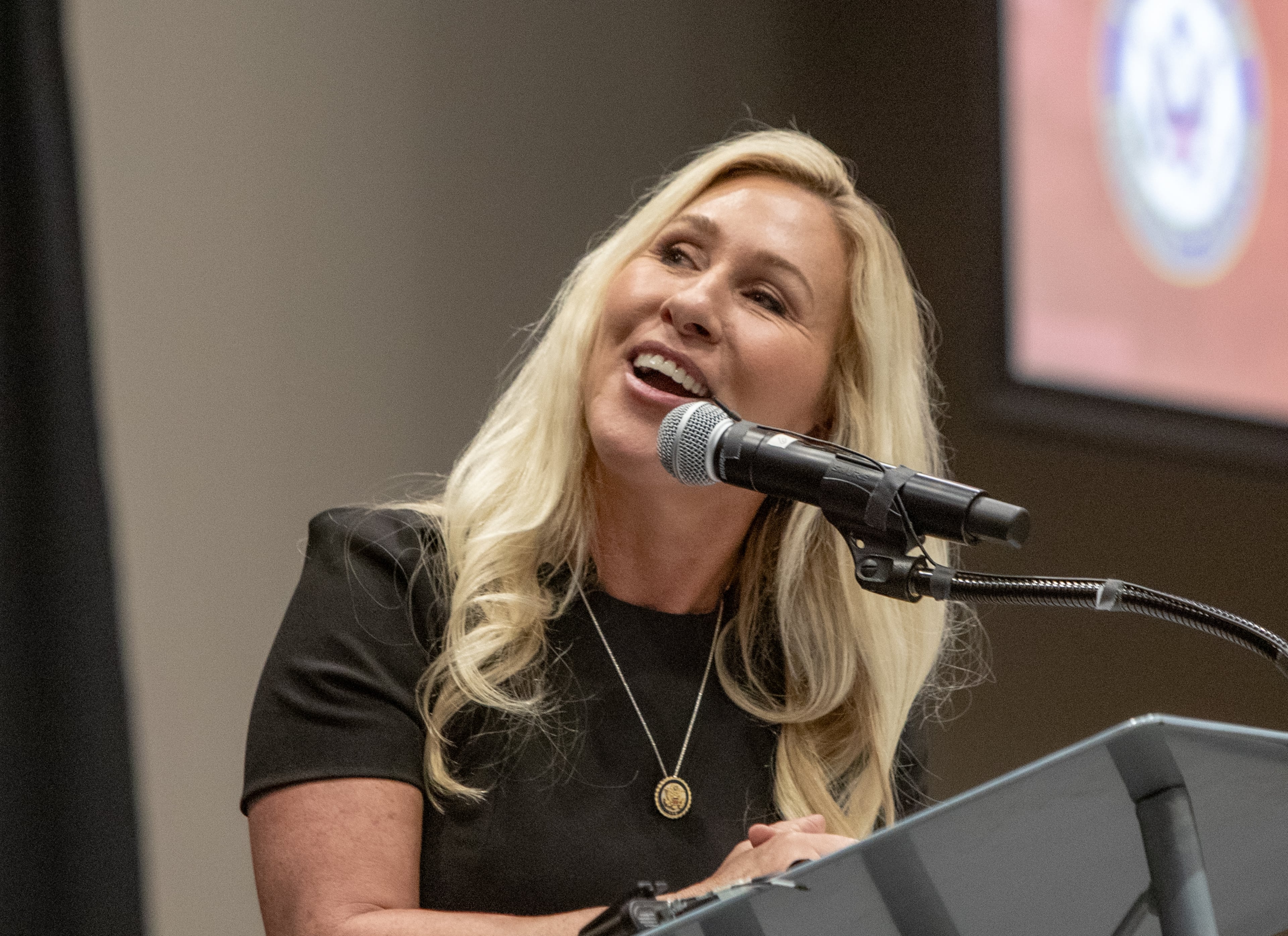Why Brian Kemp said no to a U.S. Senate bid in Georgia

Surrounded by his closest allies at the Sea Island Resort late Monday, Gov. Brian Kemp finally said publicly what he had long held privately. Hours earlier, he had dropped the bombshell that he wouldn’t run for U.S. Senate against Democrat Jon Ossoff. And his friends and supporters wanted to know why.
He offered a straightforward assessment: To mount a statewide campaign in Georgia’s political climate, you have to be all-in to run for the job — and then all-in to do the job. And he simply wasn’t.
The Atlanta Journal-Constitution talked to seven Kemp allies to report on events at the private beachfront resort and beyond. They were granted anonymity because they were not authorized to speak publicly about Kemp.
It wasn’t that the governor doubted he could win. For months, well-connected donors, party activists and U.S. senators pressured him to run. They promised party support and financial backing, and pointed to polls showing Ossoff’s vulnerabilities and Kemp’s strengths.
Kemp’s confidants say he was optimistic he could reassemble the same coalition of crossover voters, mainstream Republicans and hardcore conservatives that powered his back-to-back victories over Democrat Stacey Abrams in the past two races for Georgia’s top job.
But U.S. Senate was never a job Kemp envisioned for himself. He heard out Senate GOP leaders and other party powerbrokers as part of what he called his “due diligence.” Still, he told his friends, his instincts told him not to run.
As one close ally put it: “He feels like he’s got the greatest job in politics. Does he really want to spend the last year and a half in office campaigning for something else?”
‘Praise Jesus’
That reluctance to trade the authority of the governor’s office for a seat in a gridlocked Senate drew comparisons to another Georgia politician: The late Zell Miller.
Some close to Kemp say Miller’s experience weighed heavily on his mind. Like Kemp, Miller was a two-term governor who had grown accustomed to the vast powers of the office.
After Miller was tapped to fill an open U.S. Senate seat in 2000, he spent much of his four years in Washington battling fellow Democrats and chafing at the limits of the legislative branch as he grew further estranged from his party.

Like Kemp, Miller, who died in 2018, also rejected a full-court lobbying press to seek a full six-year term. Kemp’s own pressure campaign may have been even more intense — so much so that he often tried to make light of it.
On Sunday at the donor retreat at Sea Island, an annual fixture on the GOP calendar, the governor nodded to the swirl of rumors as he shared the stage with Scott Jennings, a CNN commentator and potential Senate contender from Kentucky.
When Kemp asked Jennings if he were running for office, Jennings cracked there might be two Senate candidates on stage. Kemp shot back: “Listen, Scott, I’m the one asking the questions here,” as the crowd roared with laughter.
Behind the jokes was a serious political reality: Kemp would have been a formidable candidate. One senior Democrat texted “praise Jesus” after the news broke — one of many celebratory reactions from leaders in the minority party.
And with good reason. After narrowly defeating Abrams in 2018, Kemp built a robust alliance of MAGA Republicans and swing voters to trounce a Donald Trump-backed challenger in the GOP primary and then beat Abrams again in their 2022 rematch.

Since then, the long-simmering feud between Kemp and Trump has mostly cooled, and officials say the two even shared a conciliatory phone call Monday when Kemp broke the news of his decision.
And though he’s embraced a staunchly conservative record — signing strict anti-abortion laws, expanding gun rights and overhauling election rules after Trump‘s 2020 defeat — Kemp remains broadly popular in Georgia.
The latest Atlanta Journal-Constitution poll, released last week, showed his approval ratings hovering around 60%, with a broad majority of independents saying they approve of his record. He was the only Republican of four tested in the AJC poll within striking distance of Ossoff in a hypothetical matchup.
‘In the ball field’
That delicate balance of energizing the base while appealing to moderates is why national Republicans were eager for Kemp to run in a state as deeply divided as Georgia.
Now the scramble begins. Some, like Insurance Commissioner John King and U.S. Rep. Mike Collins of Jackson, have already laid the groundwork for campaigns.

And U.S. Rep. Marjorie Taylor Greene of Rome, the polarizing Trump ally, has flirted with a run, alarming some GOP leaders who worry she could alienate the coalition Kemp so effectively cultivated.
As for the governor, his next steps are a mystery.
Some believe the 61-year-old could pivot to the private sector. Others think he’s angling for a future White House bid in 2028. What‘s clear is that he won’t be standing idly on the sidelines during the coming election cycle.
At his Sea Island retreat, Kemp courted donors who spent as much as $100,000 for honorary titles — a reminder he’s still reloading the potent political machinery that helped elect him twice and pass his top legislative priority this year.
That‘s funding he can use to boost a favorite candidate, hammer Ossoff and promote his top policy priorities.
And during his Monday evening speech, Kemp gave the impression he plans to shape the GOP field from the outside.
“I’m not on the ballot,” he told supporters, “but I’ll be on the ball field.”



